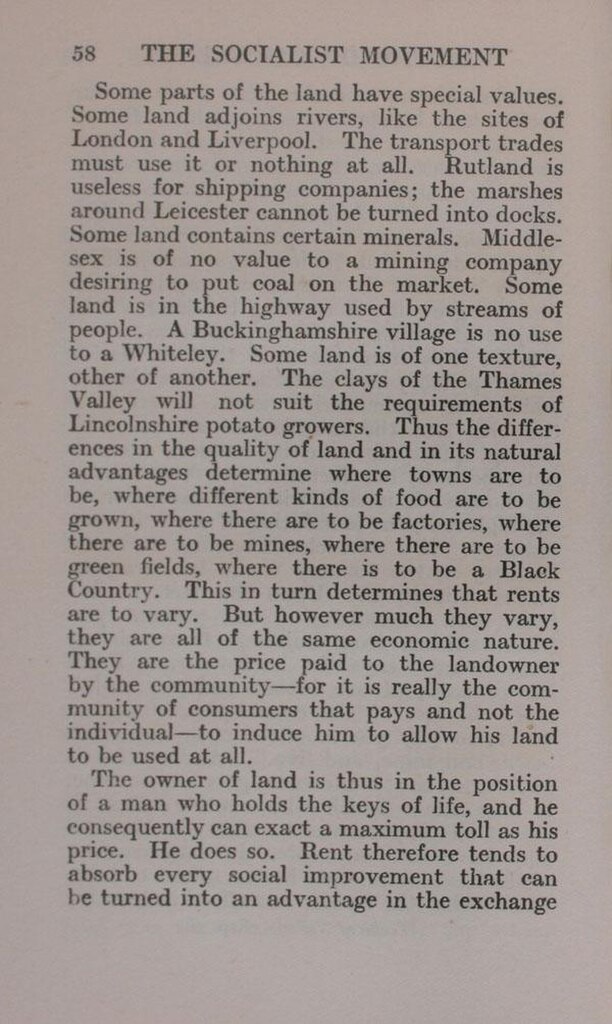Some parts of the land have special values. Some land adjoins rivers, like the sites of London and Liverpool. The transport trades must use it or nothing at all. Rutland is useless for shipping companies; the marshes around Leicester cannot be turned into docks. Some land contains certain minerals. Middlesex is of no value to a mining company desiring to put coal on the market. Some land is in the highway used by streams of people. A Buckinghamshire village is no use to a Whiteley. Some land is of one texture, other of another. The clays of the Thames Valley will not suit the requirements of Lincolnshire potato growers. Thus the differences in the quality of land and in its natural advantages determine where towns are to be, where different kinds of food are to be grown, where there are to be factories, where there are to be mines, where there are to be green fields, where there is to be a Black Country. This in turn determines that rents are to vary. But however much they vary, they are all of the same economic nature. They are the price paid to the landowner by the community—for it is really the community of consumers that pays and not the individual—to induce him to allow his land to be used at all.
The owner of land is thus in the position of a man who holds the keys of life, and he consequently can exact a maximum toll as his price. He does so. Rent therefore tends to absorb every social improvement that can be turned into an advantage in the exchange
